Playlist
Self-Sovereign Identity & Verifiable Credentials
Show more
8 videos in this playlist
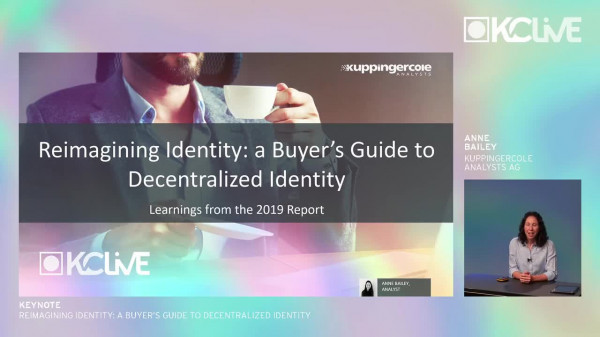
Event Recording
Anne Bailey: Reimagining Identity: a Buyer’s Guide to Decentralized Identity
Aug 07, 2020
Blockchain is a reaction to real security and privacy concerns. Whether or not you choose to adopt any blockchain solution, these concerns do exist and should be addressed in the way you manage enterprise Identity and Access Management. This session is for those who want to know what components to consider when implementing a blockchain ID system, and for those who wouldn’t touch blockchain with a 10-foot stick but still value the insights that come from a different identity paradigm.
Modeled from KuppingerCole’s Blockchain ID Buyer’s Compass, this...
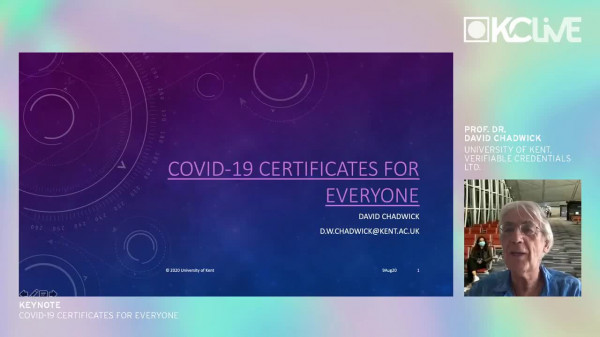
Event Recording
Prof. Dr. David Chadwick: COVID-19 Certificates for Everyone
Aug 07, 2020
Working with the NHS, we are connecting our verifiable credentials infrastructure to its COVID-19 tests database so that we will be able to issue COVID-19 verifiable credentials to people in real time. Our unique design provides selective disclosure and conformance to GDPR for both the issuer (the NHS) and the verifier (e.g. a restaurant or a care home), without the need for a blockchain, revocation infrastructure or zero knowledge proofs. We will describe the architecture of our system, provide screen shots of the mobile phone interfaces, and describe the user trials we are shortly to...
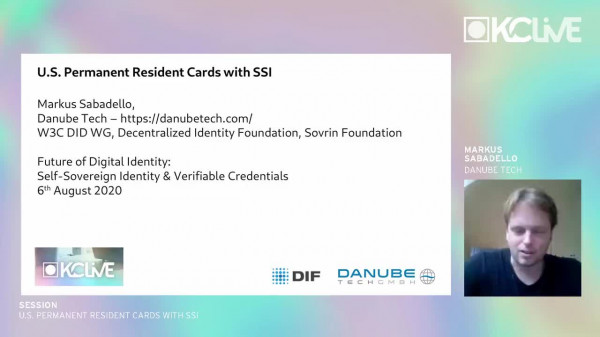
Event Recording
Markus Sabadello: U.S. Permanent Resident Cards with SSI
Aug 07, 2020
The U.S. Department of Homeland Security (DHS) has supported Self-Sovereign Identity technologies such as Decentralized Identifiers (DIDs) and Verifiable Credentials for several years. Now, a number of companies have been selected to work with DHS on implementing digital versions of identity documents such as the Permanent Resident Card (Green Card). In this use case, the issuer of Verifiable Credentials is USCIS (United States Citizenship and Immigration Services), and the verifier is TSA (Transportation Security Administration).
The overall objective is to make use of SSI...

Event Recording
Will Abramson: Solving Problems with SSI
Aug 07, 2020
An overview of a number of problem-driven use cases for SSI technology, focusing on a number of different domains; healthcare, distributed machine learning and education. A recap of research undertaken at the Blockpass Identity Lab over the last year.
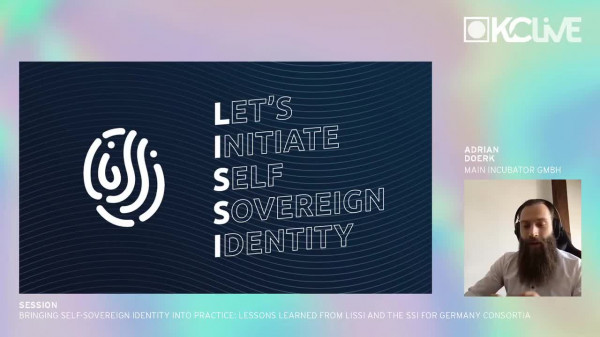
Event Recording
Adrian Doerk: Bringing Self-Sovereign Identity Into Practice: Lessons Learned from Lissi and the SSI for Germany Consortia
Aug 07, 2020
In the future, you will not only decide where your data is stored, but also with whom you want to share your data. If you share data, everything will be logged for you and you will always have an overview of who has received data from you. This is what transparency looks like and this is what SSI promises you.
But, what are the challenges when trying to implement SSI paradigms in the real world, and where do we may have to change the overall reception on digital identities? Get first-hand insights from our experience on a project to initiate...
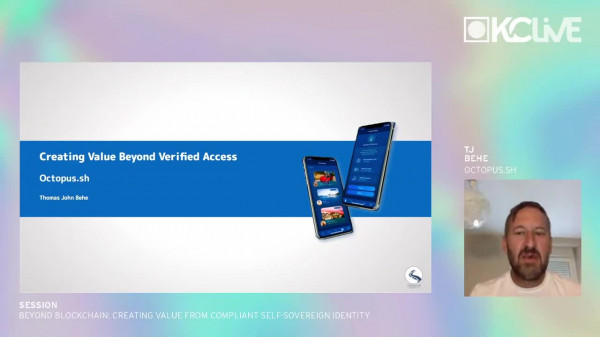
Event Recording
TJ Behe: Beyond Blockchain: Creating Value from Compliant Self-Sovereign Identity
Aug 07, 2020
Enterprise wants to focus on the value identity can bring beyond verified access.
Whilst reducing identity management compliance risk and storage costs, more organizations are giving customers their identity ownership back. They are using intelligent agents, real-time data updates and new conferred trust verification methods to leverage (consented-for) identity data insights for cross-sell and up-sell - and to better service customers, employees and partners.
Distributed graph technology is enabling this. It guarantees privacy, anonymity and security – ensuring no...
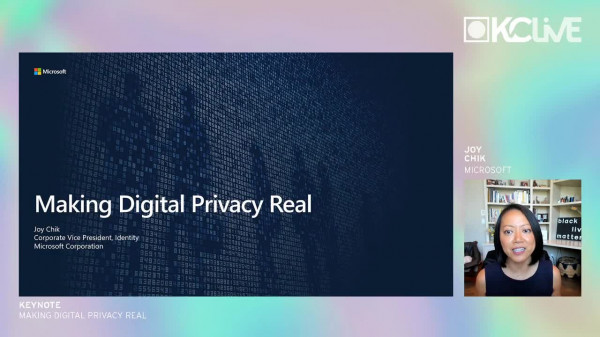
Event Recording
Joy Chik: Making Digital Privacy Real
Aug 07, 2020
Digital privacy is a central concern for pretty much everyone. But what does ‘privacy’ really mean? How do you get it and what does it cost you? The identity community has been hard at work on a new identity model that gives people a path to take control of their online identities and personal information, making privacy convenient for individuals and practical for the organizations they interact with. In this keynote, Joy Chik will share why this identity model is necessary, how it’s becoming real, and what steps will catalyze adoption.









